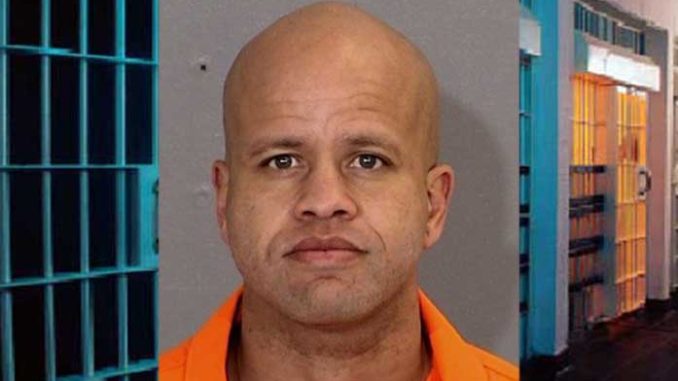
The Arizona Court of Appeals has tossed out a former Fort Huachuca soldier’s 50 convictions of child molestation because jurors heard testimony from two witnesses they should not have, it was announced Friday.
Justin Alexander Copeland is serving a 34-year state prison sentence with no early release after being convicted by a Cochise County jury in 2019 of engaging in multiple acts of non-intercourse sexual contact with his stepdaughter from June 2016 to December 2017.
During Copeland’s trial, his court-appointed attorney objected multiple times to the inclusion of the hearsay testimony from one of the stepdaughter’s teachers and from a school counselor. Judge Laura Cardinal, who was presiding over her first trial, overruled the objections.
However, a three-judge appellate panel found there was a possibility the jury’s verdicts may have been prejudiced by “the repeated admission” of the hearsay testimony.
The unanimous opinion further notes that “the evidence of Copeland’s guilt was not overwhelming, and because we cannot say beyond a reasonable doubt that the testimony was immaterial to the jury’s evaluation of (the girl’s) credibility.
the central issue in this case – we vacate Copeland’s convictions and remand for a new trial or other proceedings consistent with this opinion.”
In Arizona, a defendant in a child molestation can be convicted on the uncorroborated testimony of the victim. However, Presiding Judge Philip Espinosa wrote in the opinion that in Copeland’s case there was “no physical evidence, there was no eyewitness testimony corroborating (the girl’s) allegations, and all of Copeland’s recorded admissions were equivocal”, or open to more than one interpretation.
“While such evidence is not required for the state to meet its burden of proof…its absence here is a factor in our determination that the error was not harmless in light of the properly admitted evidence,” the opinion states.
That opinion, however, does not take effect for 30 days, allowing either side a chance to file a petition for review with the Arizona Supreme Court. For now, Copeland stays in prison while his appeals process continues.
If the remand order is upheld then Copeland must be released by the Arizona Department of Corrections. He would be transferred to the custody of the Cochise County sheriff while a decision is made by the county attorney’s office on whether to proceed to a new trial.
A retrial must be held within 60 days of the final order overturning the conviction.
If Copeland is retried, there will likely be changes to what evidence the new jury sees and hears. For instance, jurors might end up seeing more video clips pulled from hours of police body cameras from a welfare check call after Copeland learned of his stepdaughter’s accusations.
During the trial, Copeland’s attorney objected that the prosecutor, Sara Ransom, edited the body cam footage in a way that “omitted necessary context.” Jurors saw at least one clip in which Copeland’s mouth was moving but they weren’t allowed to hear what he was saying, according to court records.
On appeal, Copeland also argued Ransom edited out Copeland’s “vehement denials that he committed these crimes” and thus the jury “could only speculate about what he was saying.” However, the opinion notes the defense could have -but did not- request admission of additional body camera footage to provide jurors “the context he contends was necessary.”
Copeland’s new trial attorney would have an opportunity to address the body cam footage concern before any trial takes place.
The appellate judges also addressed Copeland’s claims that Ransom engaged in several instances of prosecutorial error during the trial. One such claim involved her repeated allusions to an order of protection which Cardinal, the trial judge, previously ruled inadmissible.
The appellate judges noted they “do not condone the prosecutor’s apparent violations of the court’s order” but were confident the same issue “is unlikely to recur at any trial.”
Although Copeland’s convictions were overturned, the court of appeals denied several other claims he raised.
Copeland was represented on appeal by Xochitl “Sochi” Orozco, the Cochise County Legal Advocate. The Arizona Attorney General’s Office argued on behalf of the Cochise County Attorney’s Office.
READ MORE ABOUT COPELAND’S CASE HERE

